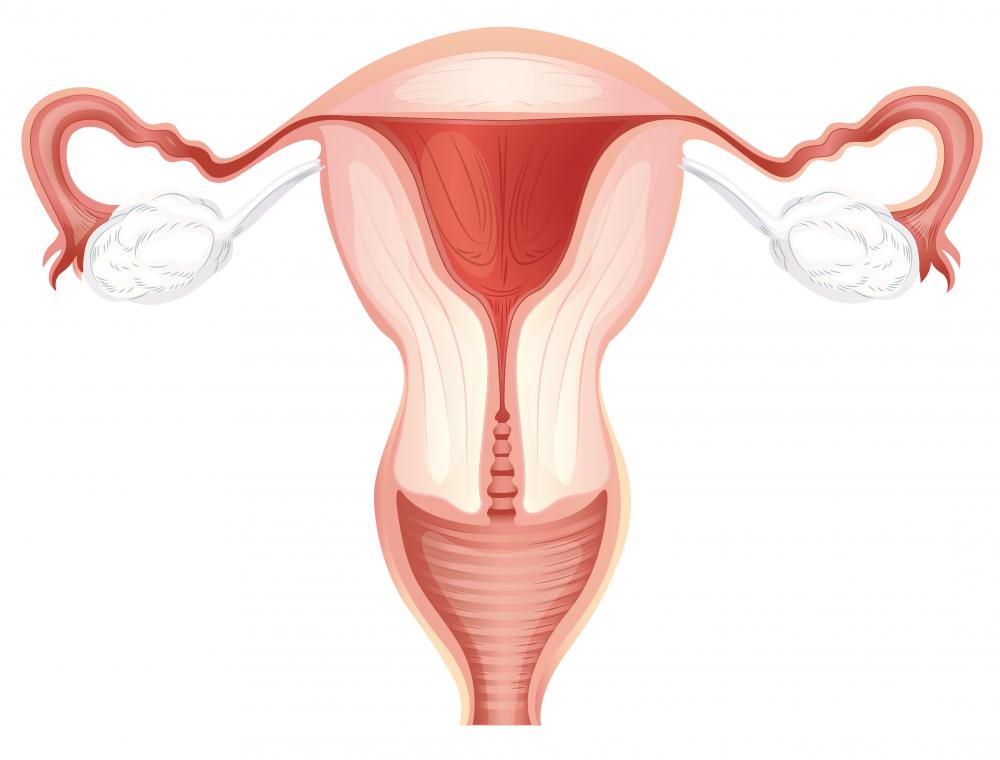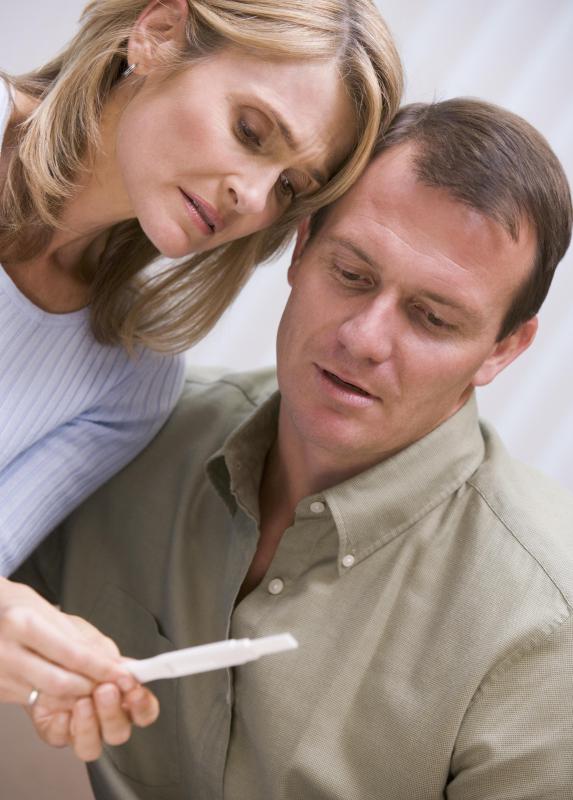At WiseGEEK, we're committed to delivering accurate, trustworthy information. Our expert-authored content is rigorously fact-checked and sourced from credible authorities. Discover how we uphold the highest standards in providing you with reliable knowledge.
What Is a Fertile Womb?
A fertile womb refers to a uterus, or womb, that is able to conceive and become pregnant. Fertility is a finite process in most women's lives, occurring in the time between puberty and menopause. The womb is actually able to conceive only once a month, for about a day at a time, during a process called ovulation. If there are problems in the reproductive system or the fertile years are over, the womb is considered infertile.
The uterus is the biological term for womb, whether it is a fertile womb or an infertile one. The uterus is the central aspect of the female reproductive system. It is a triangular pocket-like organ, where each point connects to tube structures, forming the complete reproductive system. The bottom of the uterus connects to the vaginal canal, where semen is carried to the uterus. The top corners of the uterus connect to fallopian tubes, which carry eggs to the uterus for fertilization.

Ovulation and the menstrual cycle are important functions of the female reproductive system, which begins at puberty, around the age of 12, and remains active until menopause, which occurs at about age 40 for most women. The menstrual cycle must remain healthy and functional in order for a womb to be considered fertile. It is a monthly cycle, in which an egg is developed and released into the fallopian tubes for fertilization. The lining of the uterus fills with blood, preparing a warm womb for a fetus to develop should fertilization occur. Normally, the egg is not fertilized, and the blood is released out of the uterus through the vagina.

A fertile womb may refer to a woman's fertile uterus at any point during her child-bearing years, after puberty and before menopause, or it may only be used to describe the uterus while it is ovulating. Ovulation is the only point in which a woman is actually fertile and can become pregnant, so this is the most accurate definition. Typically, ovulation occurs about 14 days before the first day of a woman's period, when the egg is released from the ovaries into the fallopian tubes. The egg may be fertilized within 12 to 24 hours after ovulation, but if it reaches the uterus before being fertilized, it will dissolve and be released with the menstrual blood.

There are a couple of natural signs that women can look to that can help determine if they currently have a fertile womb. These techniques are very accurate and have helped many women conceive. The first sign is that the basal body temperature, which is the body temperature first thing in the morning before any activity, is raised about one degree on the day of ovulation. Another sign comes from the color and texture of the cervical mucus, which is abundant, thin, and transparent. Cervical mucus can be seen on toilet paper or by sticking a clean finger into the vagina.

Most women experience a period of their lives, between puberty and menopause, where they have a fertile womb. Infertility is a natural part of the reproductive cycle, which occurs before puberty and after menopause, but some women never become fertile. An infertile womb can be caused by a variety of factors, usually having to do with dysfunction in the ovulation process. The most common cause of infertility is a hormone imbalance, called polycystic ovarian syndrome. Some other, less common causes of infertility in women are blocked fallopian tubes, a malformed uterus, and uterine fibroids.
AS FEATURED ON:
AS FEATURED ON:


















Discuss this Article
Post your comments